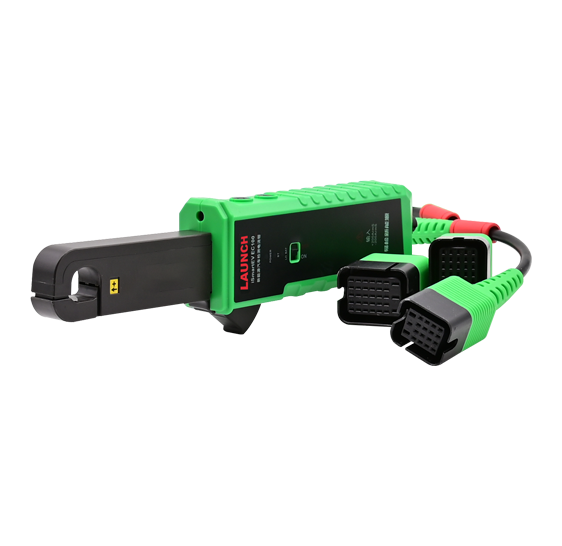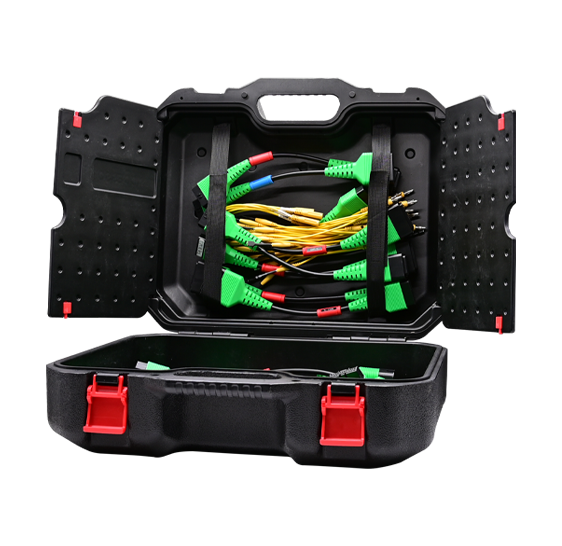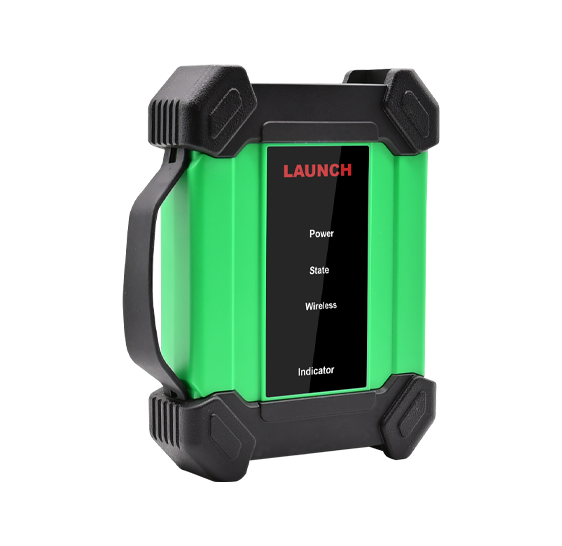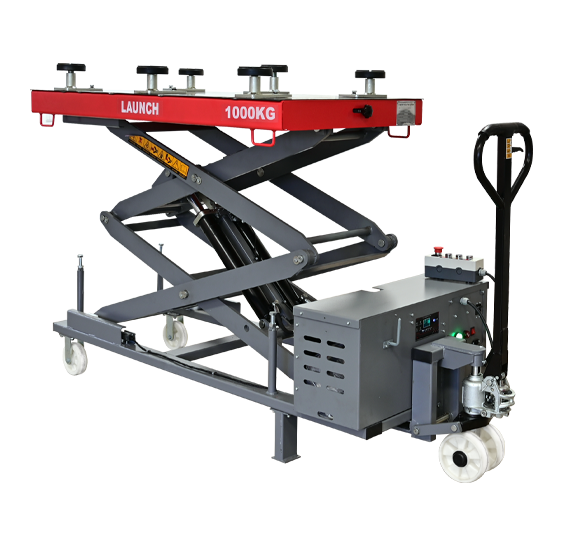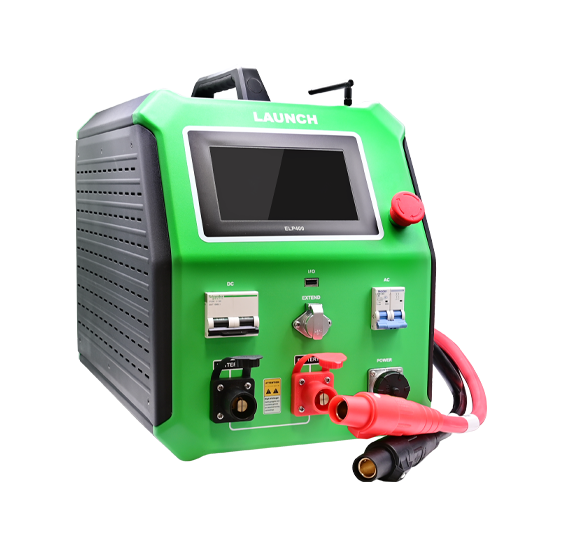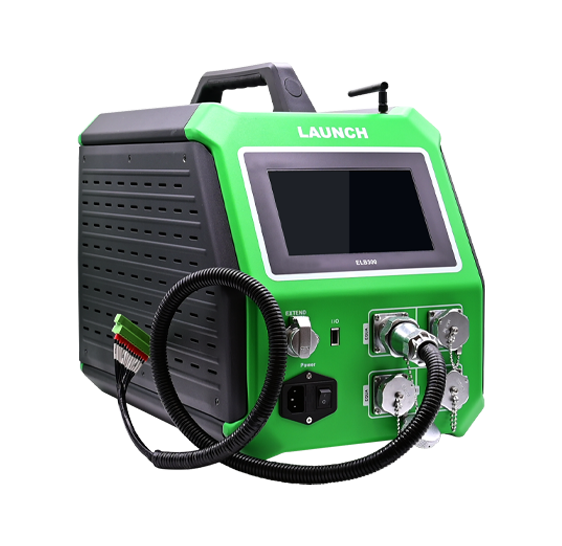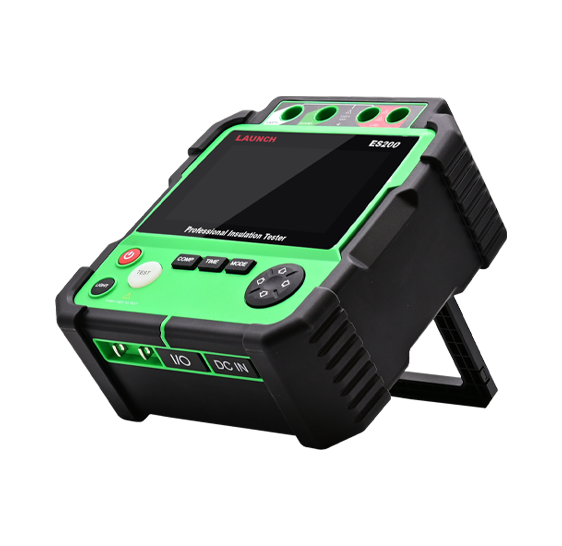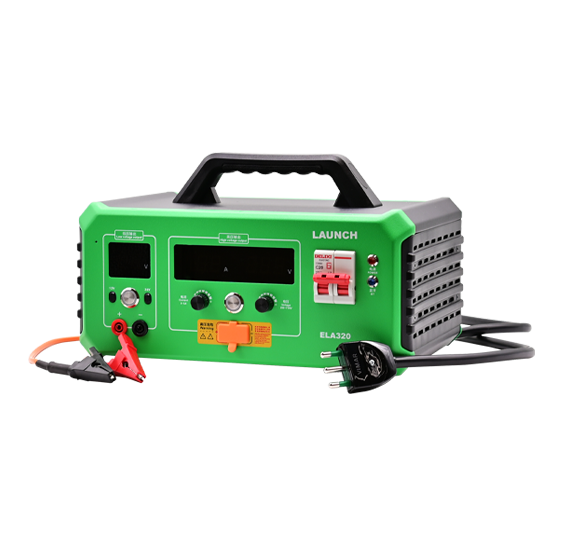EV LIFTS
EV LIFTS
DIAGNOSE
THE FUTURE
IS GREEN
DIAGNOSE
THE FUTURE
IS GREEN
Schedules of workshop visits for electric vehicles
1
Incoming inspection
Diagnosis of the
HV vehicle
A vehicle with high-voltage (HV) technology comes into the workshop due to a problem.
2
3

Error detection

Safety steps
With the X-431 EURO TAB III, the HV ADD-ON Kit & EG100 current clamp, a comprehensive diagnosis is carried out.

A fault is detected in a cell of the HV battery.
4

Battery removal
The HV system is de-energised according to the manufacturer’s specifications.
5
6

Battery inspection and discharge

Module exchange
Mit dem speziell entwickelten Hebesystem TLT610 wird die HV-Batterie ausgebaut.

The HV battery is opened. The ELP 400 is used to discharge the cell module in order to be able to work safely and voltage-free.
7

Voltage equalisation
The defective module or cell is replaced.
8
9

Leak test

Battery assembly
With the ELB 300, all cells are brought to the same voltage level.

The ELT 500 is used to perform a thorough leak test of the HV battery.
10
11

Insulation resistance test

Commissioning
With the TLT610 lifting system, the HV battery is safely mounted again.

The ES 200 is used to measure the insulation resistance in order to check the high-voltage battery for short circuits.
12

The HV system is put into operation according to the manufacturer’s specifications. The vehicle is now ready for use again.
Schedule of Workshop Visits for Electric Vehicles
Step 1 - 3
Incoming inspection

Diagnosis of the
HV vehicle
A vehicle with high-voltage (HV) technology comes into the workshop because of a problem.

Error detection
With the X-431 EURO TAB III, the HV ADD-ON Kit & EG100 current clamp, a comprehensive diagnosis is carried out.

Safety steps
A fault is detected in a cell of the HV battery.
Step 4 - 6

Battery removal
The HV system is de-energised according to the manufacturer’s specifications.

Battery inspection and discharge
The specially developed TLT610 lifting system is used to remove the HV battery.

Module exchange
The HV battery is opened. The ELP 400 is used to discharge the cell module in order to be able to work safely and voltage-free.
Step 7 - 9

Voltage equalisation
The defective module or cell is replaced.

Leak test
With the ELB 300, all cells are brought to the same voltage level.

Battery assembly
The ELT 500 is used to perform a thorough leak test of the HV battery.
Step 10 - 11

Insulation resistance test
With the TLT610 lifting system, the HV battery is safely mounted again.

Commissioning
The ES 200 is used to measure the insulation resistance in order to check the high-voltage battery for short circuits.
Step 12

The HV system is put into operation according to the manufacturer’s specifications. The vehicle is now ready for use again.
- © 2023 All Rights Reserved | LAUNCH Europe GmbH


